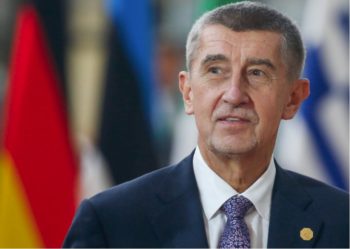
It happened during a press conference in Frankfurt less than two months ago but already feels like something from another century—or planet.
In the days since, the novel coronavirus and an oil price war between Saudi Arabia and Russia have rocked financial markets and brought the world to the brink of an economic crisis.
Understandably, these two extraordinary events have grabbed global attention. Yet the trickle of concerning climate news has not slowed. …
The United Nations won’t hold any face-to-face climate change talks until at least the end of April, as part of the effort to contain the coronavirus, according to Climate Change News.
An EU-China climate summit due to take place at the end of the month has also been postponed.
Such events are essential for governments to draft agreements in advance of the UN’s next global climate meeting, scheduled to take place in Glasgow in November.
The COP26 conference is particularly critical, as all signatories are supposed to present even more ambitious plans to cut greenhouse gas emissions than called for under the 2015 Paris Agreement.
So far, only the Marshall Islands, Suriname, Norway, and Moldova have presented such plans, according to the World Resources Institute.
The climate policy push is at risk of stalling on a national level as well. The U.K. scaled back plans to put the environment at the center of its budget last week.
Spain, which has made climate change a central part of its political agenda, halted all legislative activity for at least two weeks and declared a state of emergency over the weekend.
Despite the temporary setbacks, European Commission president Ursula Von der Leyen said last week that the European Union remains committed to its Green Deal, a moonshot plan to make the bloc carbon neutral by 2050.
“Clearly we cannot ignore what’s going on globally,” said EU Environment Commissioner Virginijus Sinkevicius on Bloomberg TV. The global “climate emergency didn’t go anywhere.
But transforming the economy is a titanic effort, requiring all the pieces to move in perfect coordination over an extended period of time.
Until now, public policy and private investment have pushed each other to advance climate goals.
Whether all the stakeholders involved can deal with the immediate shocks while keeping long-term goals in sight remains to be seen.
Read rest at Bloomberg

















We have a bigger more real Crisis then this so called Global Warming/Climate Change like ending all travel to and from China something the UN and Democrats oppose
‘The global “climate emergency didn’t go anywhere” . You got that right, Virginijus.